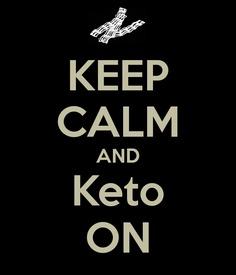Slow loss
Options
Replies
-
Sunny_Bunny_ wrote: »rugged1529 wrote: »Thanks for the advice. It's seems like don't eating too much protein has been drilled into me. At what point does protein start to turn into glucose or how can I find out for me personally? I can't find this anywhere. Even if I had a ball park figure, at least I would have an idea. I really appreciate you guys.
GNG is a demand driven process. Your body is converting some protein into glucose all day long. If you could prevent it, you'd die. You have no control over this process. Not even by eating "too much". Eating more does NOT create more GNG simply because it's available.
http://www.ketotic.org/2012/08/if-you-eat-excess-protein-does-it-turn.html?m=1
You also don't really have to limit it at each meal either.
https://examine.com/nutrition/how-much-protein-can-i-eat-in-one-sitting/
Doesn't excess protein that the body doesn't need get converted to glucose through GNG and then to glucose and potentially stored as fat? There is no place else excess protein can go, is there? I'm like @johnnylew in thinking that 4 to 6 oz per meal would be a maximum.
If I go out for dinner and order a nice ribeye (bone in, yum) and don't portion off my approximated 4 oz portion and just eat the steak cause it is so good (I order it with just salt and pepper), my fbs is elevated in the morning as if I had eaten a carby meal. I usually have grilled veggies on the side with butter. I specify no sugar or gluten to be used in preparing any item I have. I've assumed from the reading I've done that this is due to my eating too much protein at that last meal for the evening which I don't burn off. My body is happily digesting my ribeye and making glucose through GNG. Have I misunderstood this?
You always seem to have the latest research at your fingertips, @Sunny_Bunny_
If you eat too much of anything it will get converted to fat. Protein, carbs or fat. It's the act of overconsumption that creates the rise in insulin to store the excess. If you're insulin resistant, this rise in insulin can certainly correlate to a rise in fbs the next day. The body will respond by secreting glucose from the trigger of insulin. That's unique to that condition.
But our bodies don't readily seek to burn protein for fuel. It's a building block. Fat and carbs are the fuel.
And sure it can't store it, but according to that second source it can hang out in limbo and be recycled for quite some time giving it plenty of opportunity to be useful.
Protein is digested slowly because the body specifically slows down digestion to make the most efficient use of the amino acids supplied.
So excess protein will hang out in the gut having its amino acids recycled and moving slowly through while excess fat or carbs will turn into stored fat quite quickly.
Protein has lots of work to do even if you don't work your body hard.
Fat and carbs can quickly become excess unless you are working your body hard.
That's the way I'm taking it.1 -
@suzqtme Perhaps Dr. Phinney might be able to shed some light regarding your question of protein converting to glucose and whether or not one can have too much protein.
http://www.meandmydiabetes.com/2012/07/17/steve-phinney-a-calorie-is-not-just-a-calorie/
The option is there to either read or listen to the ~20 podcast. I will extrapolate this one paragraph from the site above. I choose to not interpret what Dr. Phinney believes or communicates so am neither for nor against his expert opinion. I do hope you find the article helpful @suzqtme. From the article:
"Why would excess protein be a problem?
STEVE PHINNEY: A lot of people focus on what a low-carb diet does to insulin levels, and some people think it’s all about insulin levels. Some of us think beyond that, but just focusing on insulin levels per se, and the low carb diet . . . if you eat a low-carb diet, the lower consumption of carbs can indeed allow your insulin levels to go down. That’s helpful for improving insulin sensitivity. But if you also eat a lot of protein, then insulin levels will go back up because protein is an even greater stimulus of insulin production than are carbohydrates."
ETA: I just happened to find the article while searching for anything Phinney might report regarding maintenance. Hope it is helpful to someone. It seemed appropriate to the current gist of the thread so I thought I would add it. I don't eat high protein nor do I have the inclination.1 -
20lbs in 3 months is nearly 1.5lb a week. I wouldn't call that slow. I average 1lb a month - 4 years to lose 90lbs.0
-
Its all part of our "microwave" thinking, everything needs to come quickly or ELSE! lol Or else what? Are we giving up on this woe which (has for me at least) practically cured my Type 2 Diabetes? I settled in my heart and mind that LCHF is the best way for me to eat since its reversing all bad effects of diabetes. At times, I get frustrated because it's been close to a year and I'm only 2 lbs away from my original goal and I'm like GEESH body can you give me break? Lol but then it's all vanity because my blood sugars have never been better, my fatty liver is not so fatty anymore (the lab work proves it), and I feel so much better! Keep at it! It takes time.. don't give up and don't rush because in reality we really can't manipulate our bodies that much. It's much smarter than us LOL.3
-
Thanks for the advice. I'm going to be more patient plus like many are saying, it heals my body. I am recovering from RA and my body has been feeling really good.1




